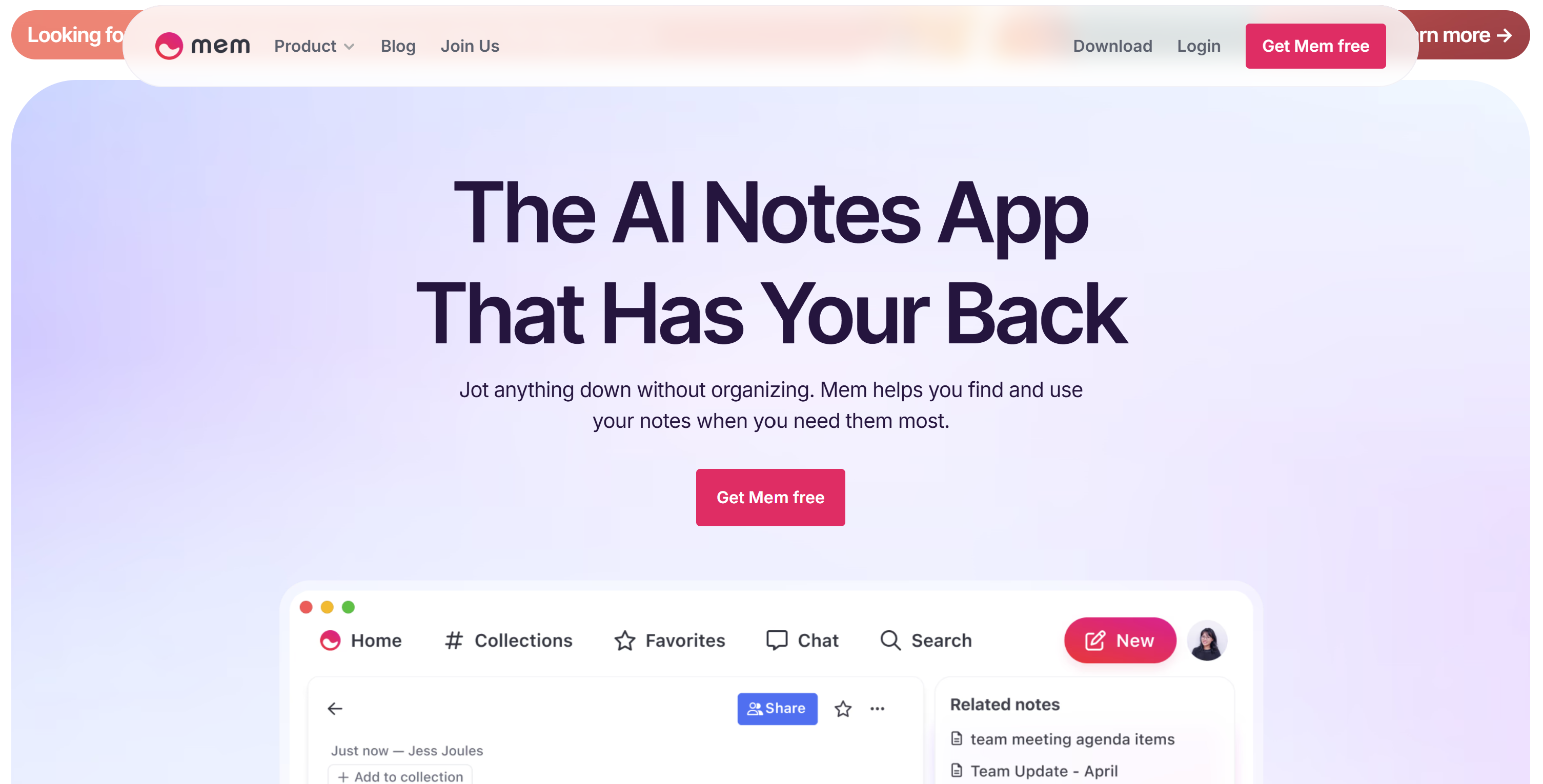
Mem.ai
VerifiedMem.ai is an innovative AI-powered note-taking and knowledge management platform that transforms how individuals and teams capture, organize, and retrieve information. Through advanced machine learning and natural language processing, Mem.ai …

Categories & Tags
About Mem.ai
Mem.ai: Next-Generation AI Knowledge Assistant for Seamless Information Management
Quick Overview
Mem.ai is an innovative AI-powered note-taking and knowledge management platform that transforms how individuals and teams capture, organize, and retrieve information. Through advanced machine learning and natural language processing, Mem.ai creates an intelligent second brain that automatically connects related ideas and makes information discoverable when needed.
What is Mem.ai?
Mem.ai serves as an intelligent knowledge assistant that goes beyond traditional note-taking applications. Rather than requiring manual organization into folders and hierarchies, Mem.ai employs artificial intelligence to automatically categorize information, establish connections between related concepts, and surface relevant content exactly when users need it. This platform represents a paradigm shift in personal and team knowledge management.
Key Features
Intelligent Note-Taking
- Effortless Capture: Quick input methods for text, images, links, and files
- Multi-Format Support: Handle various content types in a unified workspace
- Cross-Platform Accessibility: Seamless experience across devices and operating systems
- Email Integration: Forward emails directly into your knowledge base
- Web Clipper: Save web content with source attribution
- Voice-to-Text: Capture thoughts through speech recognition
AI-Powered Organization
- Automatic Connections: Discover relationships between notes without manual linking
- Smart Tagging: AI suggests and applies relevant tags to content
- Temporal Context: Organize information by time periods and projects
- Knowledge Graph: Visualize relationships between information pieces
- Semantic Search: Find information based on meaning, not just keywords
- Auto-Categorization: Group similar content without manual sorting
Team Collaboration
- Shared Workspaces: Collaborative environments for team knowledge
- Permission Controls: Granular access settings for sensitive information
- Real-Time Updates: Synchronous editing and notification system
- Knowledge Transfer: Preserve and share institutional knowledge
- Reference Linking: Connect related documents across team members
- Activity Tracking: Monitor engagement with shared information
AI Assistance
- Mem X: Advanced AI assistant for information retrieval and content generation
- Smart Summaries: Automated condensation of lengthy content
- Question Answering: Natural language queries about your knowledge base
- Content Enhancement: AI-assisted writing and editing capabilities
- Meeting Integration: Capture and organize meeting notes automatically
- Personalized Recommendations: Relevant content suggestions based on context
Who Is Mem.ai For?
Knowledge Workers
- Researchers collecting and organizing reference materials
- Writers managing ideas and research for projects
- Consultants documenting client information and insights
- Analysts tracking trends and patterns across information
- Project managers maintaining comprehensive project documentation
Creative Professionals
- Content creators organizing ideas and inspiration
- Marketers tracking campaign ideas and research
- Designers collecting visual references and client requirements
- Product managers documenting feature ideas and user feedback
- Strategists connecting concepts across different domains
Business Leaders
- Executives managing strategic information and insights
- Entrepreneurs tracking business ideas and opportunities
- Team leaders preserving and sharing team knowledge
- Business developers maintaining client and partner information
- Decision-makers requiring quick access to relevant data
Learning-Focused Individuals
- Students organizing course notes and research
- Self-directed learners building personal knowledge bases
- Professional development enthusiasts tracking learning resources
- Academics managing research papers and references
- Lifelong learners connecting ideas across disciplines
Pros and Cons
Advantages
- Reduced Organizational Overhead: Minimizes time spent manually organizing information
- Contextual Retrieval: Surfaces information based on relevance to current work
- Knowledge Discovery: Reveals connections between ideas that might otherwise be missed
- Frictionless Capture: Lowers barriers to documenting information
- Adaptive Intelligence: System becomes more valuable as your knowledge base grows
- Preservation of Context: Maintains connections between related information
- Future-Proof Storage: Creates an evolving system that grows with your needs
Limitations
- Learning Curve: New paradigm requires adjustment from folder-based thinking
- AI Dependence: Relies on algorithms that may not always align with user expectations
- Search Adaptation: Users must learn to trust and leverage semantic search capabilities
- Variable Connection Quality: Not all automated connections will be equally relevant
- Privacy Considerations: AI processing requires data access considerations
- Internet Dependency: Full functionality requires online connectivity
Implementation Best Practices
Getting Started
- Information Import: Begin by importing existing notes and knowledge
- Capture Routine: Establish consistent habits for information documentation
- Tag Foundation: Create initial tag structure while allowing AI to enhance it
- Search Practice: Learn effective query techniques for your knowledge base
- Cross-Linking: Manually connect key information while AI builds additional links
Advanced Usage
- AI Prompt Engineering: Learn optimal ways to interact with Mem X assistant
- Workspace Architecture: Design specialized spaces for different knowledge domains
- Template Development: Create standardized formats for recurring information types
- Integration Strategy: Connect Mem.ai with your broader productivity ecosystem
- Knowledge Audit: Periodically review and refine your information architecture
Frequently Asked Questions
General Questions
Q: How does Mem.ai differ from traditional note-taking apps?A: Unlike conventional note apps that rely on manual folder hierarchies and organization, Mem.ai uses artificial intelligence to automatically connect related information, suggest relevant content, and make knowledge discoverable through contextual search. This shifts the cognitive load of organization from the user to the system, allowing for more natural knowledge capture and retrieval.
Q: Is my information secure on Mem.ai?A: Mem.ai implements enterprise-grade security measures including end-to-end encryption, secure data storage, and strict access controls. The platform is designed with privacy considerations at its core, allowing users to control their data while benefiting from AI capabilities. Enterprise plans offer additional security features for organizations with stringent requirements.
Q: Can Mem.ai replace my existing note-taking system?A: For many users, Mem.ai can serve as a comprehensive replacement for traditional note-taking applications, particularly for those frustrated by manual organization requirements. However, some users may prefer a hybrid approach during transition, maintaining certain specialized information in legacy systems while moving toward Mem.ai as their primary knowledge hub.
Technical Questions
Q: Does Mem.ai work offline?A: Mem.ai provides some offline functionality for content creation and viewing, but its full capabilities—particularly AI-powered features—require internet connectivity. When offline, users can continue to capture information that will be processed and connected once connectivity is restored.
Q: How does Mem.ai handle different file types?A: Mem.ai supports a wide range of file formats including text, images, PDFs, and various document types. The system can extract information from these files, making their contents searchable and connecting them with related information in your knowledge base.
Q: Can I export my data from Mem.ai if needed?A: Yes, Mem.ai provides comprehensive export options that allow users to maintain ownership of their information. Data can be exported in standard formats that preserve content while acknowledging that the AI-generated connections represent unique value within the Mem.ai environment.
Usage Questions
Q: How do I transition from folder-based systems to Mem.ai's approach?A: The transition works best through an incremental approach—begin by importing existing information, then establish daily capture habits while exploring how AI connections enhance discoverability. Many users maintain both systems temporarily while growing comfortable with Mem.ai's paradigm, eventually shifting primary workflow to Mem.ai as they experience its benefits.
Q: How do teams effectively collaborate in Mem.ai?A: Team collaboration in Mem.ai centers on shared workspaces where members can collectively build knowledge bases while maintaining personal spaces for individual work. Clear permission structures, consistent tagging practices, and regular knowledge sharing sessions help teams maximize value while preventing information silos.
Q: How can I optimize Mem.ai for specific professional domains?A: Optimization strategies include developing domain-specific tag taxonomies, creating templates for standardized information capture, training the AI through consistent usage patterns, and building integration workflows that connect Mem.ai with specialized tools in your field.
Alternatives to Consider
- Notion AI: Better for structured documents and team wikis
- Obsidian: Superior for manual knowledge graphing and local storage
- Roam Research: More focused on bi-directional linking and outlining
- Evernote: Stronger legacy features and established ecosystem
- Logseq: Better for open-source advocates and local-first approach
Getting the Most from Mem.ai
- Consistent Capture: Develop habits for regular information documentation
- Trust the System: Allow AI to handle organization while focusing on content
- Cross-Domain Connections: Use Mem.ai across both personal and professional contexts
- Strategic Tagging: Balance automated and intentional information categorization
- Regular Review: Schedule time to explore AI-discovered connections
Final Thoughts
Mem.ai represents the future of knowledge management—intelligent systems that adapt to human thought processes rather than forcing users to adapt to rigid organizational structures. By removing the friction of manual categorization and surfacing relevant information contextually, Mem.ai allows knowledge workers to focus on thinking, creating, and connecting ideas rather than managing them. For individuals and teams drowning in information while starving for knowledge, Mem.ai offers a transformative approach to building an external brain that enhances rather than taxes cognitive capabilities.
Powered by Froala Editor
Key Features
Feature One
Description of key feature one for Mem.ai.
Feature Two
Description of key feature two for Mem.ai.
Use Cases
For Marketers: Speed up content creation for ads, social media, and blogs.
For Developers: Integrate AI capabilities into your applications.
For Students: Assist with research, writing, and learning new concepts.
Pros & Cons
Pros
- Pro point 1 for Mem.ai.
- Pro point 2.
Cons
- Con point 1 for Mem.ai.
- Con point 2.
Mem.ai
AI Productivity Tools
Pricing Plans
Free
Basic features included
You Might Also Like
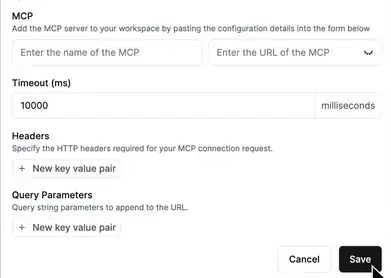
App For cHECKING
AI Education Tools
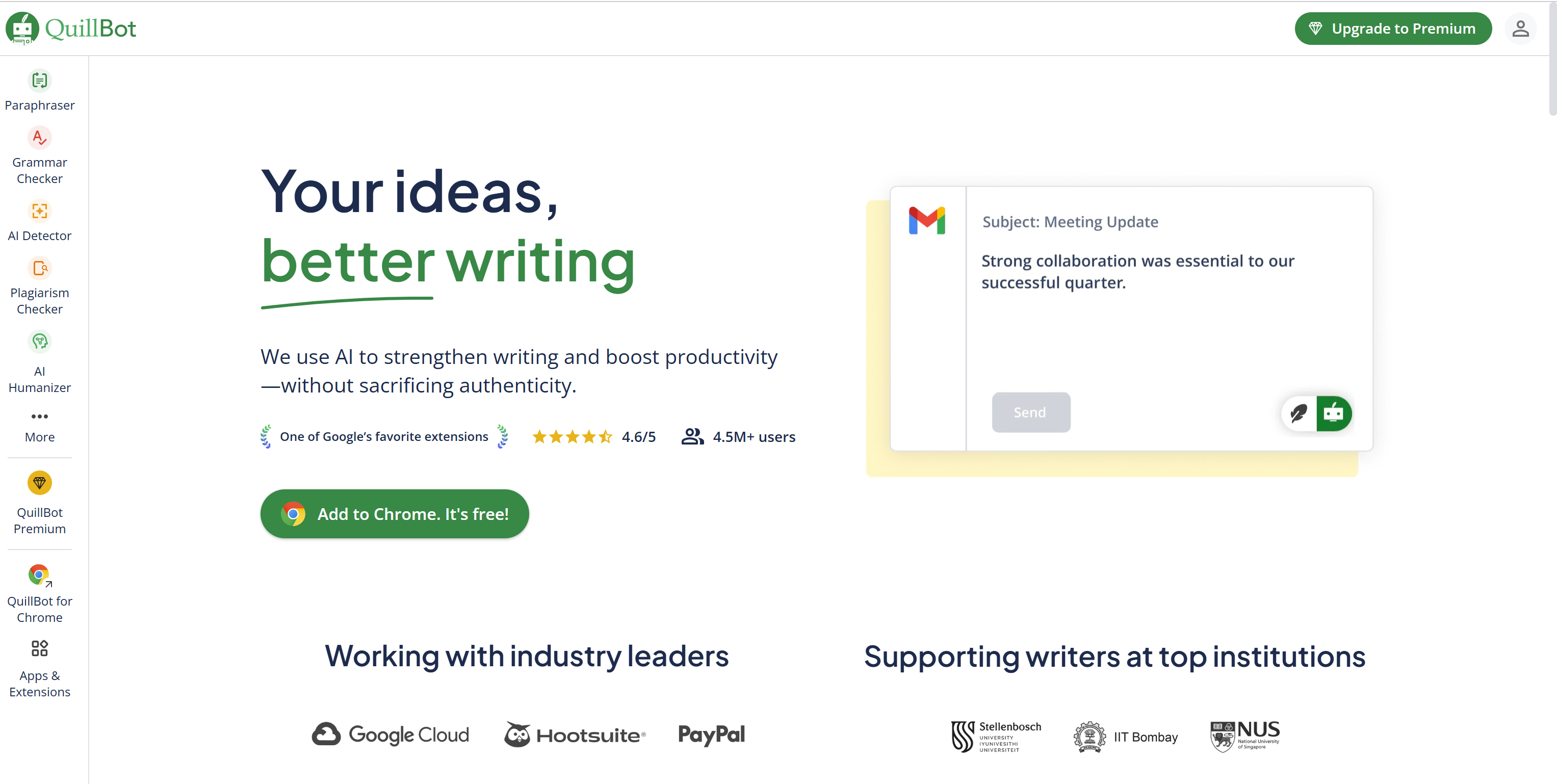
QuillBot Suite Review – Paraphraser, Co‑Writer & AI Translat
AI Copywriting Tools

Notion AI Review – Your All‑in‑One Workspace Writer & Idea
AI Copywriting Tools
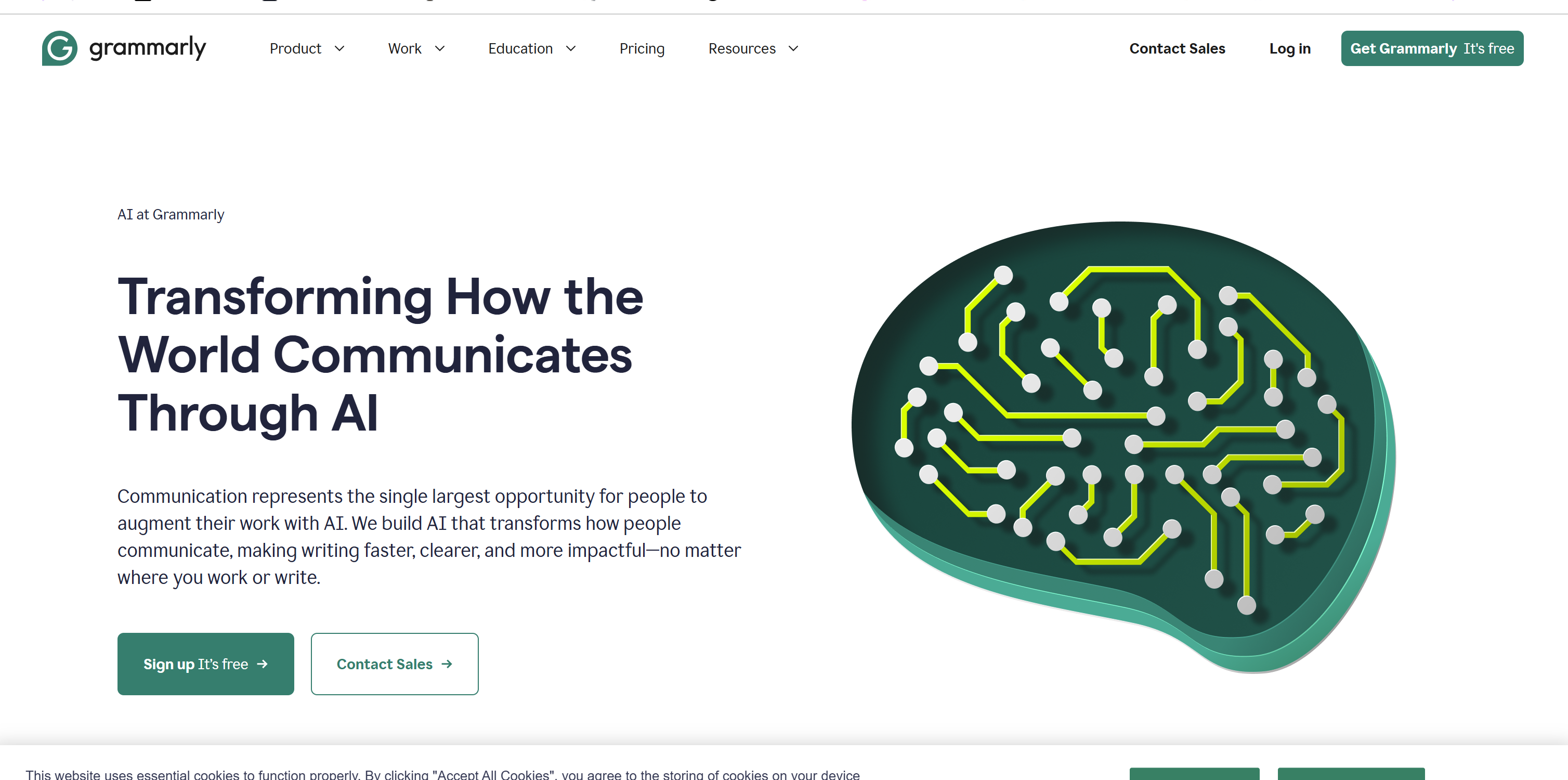
GrammarlyGO Review – AI Writing Assistant With Context‑Aware
AI Copywriting Tools
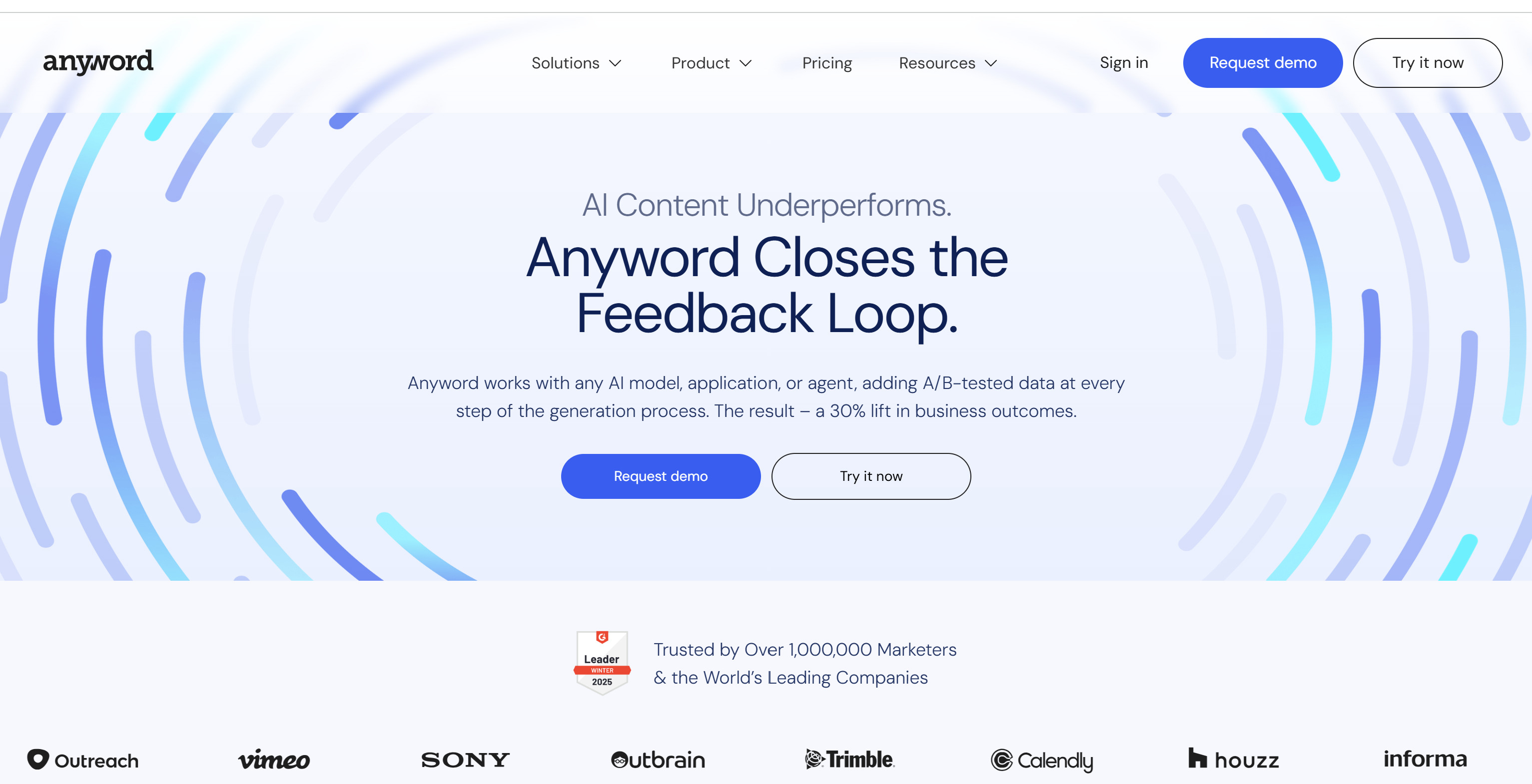
Anyword Review – Data‑Driven AI Editor & Predictive Copy Sco
AI Copywriting Tools